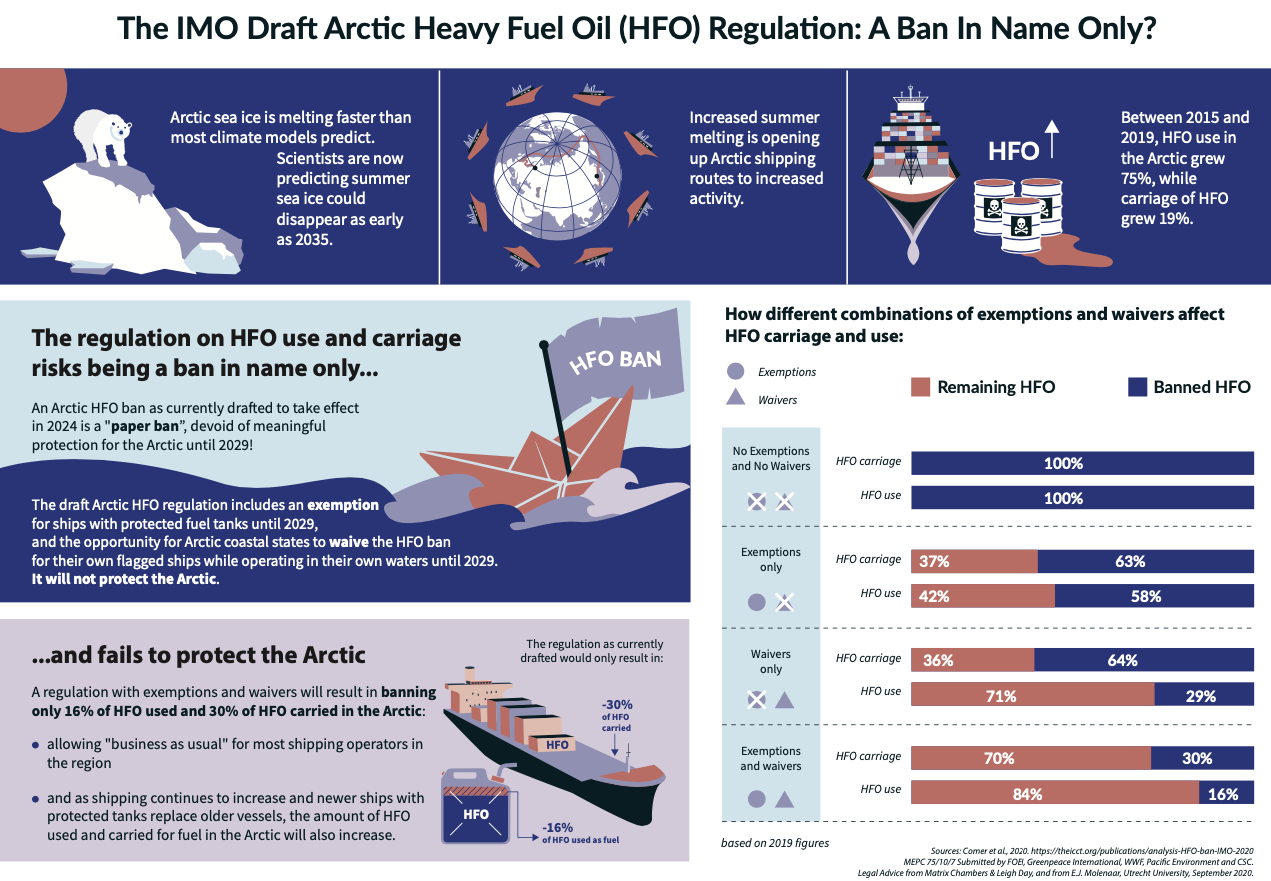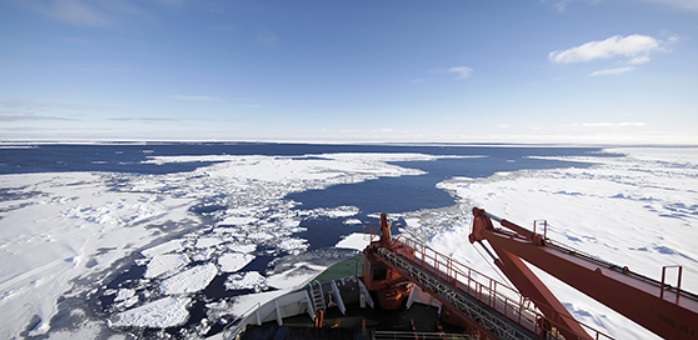As the first virtual meeting of the IMO’s MEPC 75 started today, the Clean Arctic Alliance urged member states to amend and improve its draft ban on the use and carriage of HFO in the Arctic. Through a new Infographic, it also warns states of the risk of implementing a “paper ban” – a weak regulation that will leave the Arctic exposed to greater danger from oil spills and black carbon pollution.
Instead of rushing headlong into disaster, the IMO and its Member States must make serious amendments to the draft ban on the use and carriage of polluting heavy fuel oil in the Arctic – if they approve the ban as it stands, it won’t be worth the paper it’s written on,
…said Dr Sian Prior, Lead Advisor to the Clean Arctic Alliance.
 At the IMO’s PPR 7 subcommittee meeting in February 2020, the IMO developed a draft regulation prohibiting the use and carriage as fuel of HFO by ships in the Arctic. However, the inclusion of loopholes in the draft regulation – in the form of exemptions and waivers – means that a HFO ban will not come into effect until mid-2029, the NGO warned.
At the IMO’s PPR 7 subcommittee meeting in February 2020, the IMO developed a draft regulation prohibiting the use and carriage as fuel of HFO by ships in the Arctic. However, the inclusion of loopholes in the draft regulation – in the form of exemptions and waivers – means that a HFO ban will not come into effect until mid-2029, the NGO warned.
As drafted, the five central Arctic coastal states will be able to issue waivers to their own flagged ships and by-pass the ban. As explained, the regulation is not flag-neutral, and it will create a two-tier system of environmental protection and enforcement in the Arctic, along with lower standards and negative environmental consequences in the Arctic’s territorial seas and exclusive economic zones. This version of the ban could also potentially lead to transboundary pollution.
Research by the International Council on Clean Transportation found that loopholes in IMO’s draft regulation means that exemptions to the ban and the allocation of waivers by central Arctic coastal states will allow up to 74% of HFO-fueled ships to continue using HFO in the Arctic until mid-2029.
As a result, only 30% of HFO carriage as fuel and 16% of its use would be banned when the regulation comes into effect in mid-2024.
Earlier this month, Norway announced a proposal to ban HFO from all the waters around the Arctic island archipelago of Svalbard. HFO has already been banned from Svalbard’s national park waters since 2015, and has been banned throughout Antarctic waters since 2011.
Despite the dramatic changes occurring in the Arctic, black carbon will not be addressed at MEPC 75. Therefore, the Clean Arctic Alliance is calling on the IMO and its Members to step-up and take action which will urgently reduce and eliminate black carbon emissions from ships operating within or near to the Arctic.
By switching from HFO or very low sulphur fuels (VLSFOs) to alternative cleaner fuels emissions of black carbon can be reduced by 30 – 45%. Then the installation of an efficient particulate filter could increase the reduction of black carbon emissions by over 90%.

































































